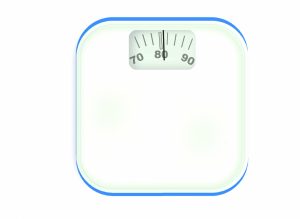Too many people either don’t exercise enough, or are simply exercising for the wrong reasons. The benefits of a healthy lifestyle are so wide ranging, and yet people still seem to focus on how they look.
By thinking about fitness and health, as opposed to just weight loss and appearance, you can make marked improvements to your lifestyle and happiness.
In this article we’ll look at:
- Tracking things other than your weight
- The key benefits of exercise
- Tips to get started
Thankfully people are starting to focus on fitness more, and are choosing to pursue sports that have really great health benefits as opposed to just the outwardly visible physical kind.
For example, there is now much greater interest in long distance cycling, triathlon and obstacle challenges such as Tough Mudder.
Setting Fitness Goals
When you are exercising for fitness and health, as opposed to weight loss, your goals also change.
Many people focus purely on their weight, and the only quantifiable measure of success is what is says on the scales, but this becomes less and less relevant as you become fitter and healthier.
There are a couple of key reasons for this.
- As you become fitter you will most likely start to build more muscle. Muscle weighs more than fat, so it is entirely possible that you are carrying less body fat and more muscle, and therefore have put on weight.
- Weight is not as measure of your fitness, and doesn’t tell you anything about how fit you are, so it becomes difficult to track your progress.

Sometimes what it says on the scales isn’t the most important thing
Instead you can set goals like improving your resting heart rate. You can either track this with a wearable, such as a Fitbit, or you can simply do it with a stopwatch.
If health is your primary concern, you may want to look at other measures, such as your cholesterol or blood sugar. Again, your weight actually tells you very little about your health, you could be well within a healthy weight range, whilst still having dangerously high cholesterol levels. If so, you should look at healthy ways to reduce LDL cholesterol before you require medication.
Another thing that you could track (though you will probably notice anyway) is your waist size. It has been shown that carrying excess weight around your waist, as opposed to other areas, can be indicative of more serious underlying health conditions. This is true even if your BMI is within the normal healthy range.
Once you’ve decided which metrics you want to track, you can set SMART objectives that will help you to achieve them.
SMART goals are:
- Specific
- Measurable
- Ambitious
- Realistic
- Time-bound
Setting SMART objectives gives you a really Specific goal that is both Ambitious while at the same time Realistic. You can Measure your progress as you seek to achieve the goal within a particular Time frame.
5 Benefits of Regular Exercise:
- Weight loss – One obvious benefit of exercise is that it will accelerate your weight loss, and help you keep weight off once you’ve lost it. Burning extra calories through exercise also means that you won’t have to cut back so much on your diet, allowing you to still enjoy the foods you love.
- Improved mood – Exercising feels good. While many people put off exercising, or going to the gym, they’ll all agree that they feel great afterwards. This is in contrast to simply going to a diet to lose weight, which can often make people grouchy.
- Gives you more energy – Exercise has been shown to boost energy levels. If you find that you regularly get tired towards the end of the working day, regular exercise might be just what you need to put a spring in your step.
- Reduced risk of other health problems – Improving your overall fitness and wellbeing will have a knock on effect on your health. A focus on fitness will make your body stronger, boost your immune system and reduce the impact of other health problems in the future.
- Social / fun – As well as boosting your mood generally, exercise is a great way of meeting new people and building new social connections. So often people who move to a new area can build an instant group of friends by joining a local sports club.
For other benefits of regular exercise check out this post from the Mayo Clinic.
Fitness Tips:
- Start small – If you haven’t done much exercise in the past, don’t rush in to a level that you won’t be able to cope with. Start out by taking extended walks, or doing simple bodyweight exercises, and build up the level of exercise as you get stronger and fitter.
- Find the exercise that is right for you – There are so many options available to you that you should spend some time trying out different types of exercise to see what you like. This could be extended hikes in the countryside, or a Zumba class at your local gym. Finding something you love will make exercise a lot more fun and you’ll be a lot more likely to stick with it. You will only learn by trying out a few different things.
- Push yourself – Once you’ve started exercising, you can only improve your fitness by pushing yourself outside of your comfort zone, or to the edge of your capability. Keep track of the exercise you’re doing and push to do more reps, or use heavier weights as you improve over time. Once you start exercising for longer periods you will start to see excellent results.
If you are simply looking to lose weight, you could probably achieve this over time by purely focusing on your diet. In contrast, to improve your physical fitness, or any measure associated with your health and wellbeing, you will have to do some exercise.
Conditioning exercises can help to make you feel much better about yourself, regardless of whether or not you are losing weight. For example exercises that improve your balance can help to prevent injuries and improve your sporting performance.
Ultimately, the best approach to improving your fitness is to balance a healthy diet with regular exercise, and learn to push yourself to the next level as you gradually improve over time.

